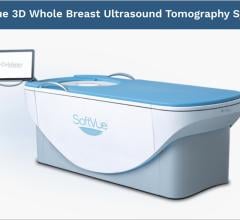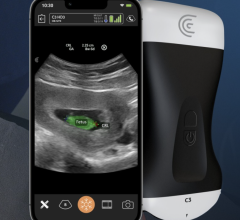
February 1, 2009 - A set of 50 genes can be used to reliably identify the four known types of breast cancer, according to research conducted at Washington University School of Medicine in St. Louis and collaborating institutions.
Using this 50-gene set, oncologists can potentially predict the most effective therapy for each breast tumor type and thereby personalize breast cancer treatment for all patients.
"Unlike a widely used genomic test that applies only to lymph-node negative, estrogen-receptor positive breast cancer, this new genomic test is broadly applicable for all women diagnosed with breast cancer," says breast cancer specialist Matthew Ellis, M.D., Ph.D., a member of the Siteman Cancer Center at Barnes-Jewish Hospital and Washington University.
The study was reported Feb. 9, 2009, through advance online publication in the Journal of Clinical Oncology. Ellis' collaborators include co-authors Charles Perou, Ph.D., associate professor of genetics and pathology at the University of North Carolina at Chapel Hill School of Medicine, Philip S. Bernard, M.D., assistant professor of pathology and medical director of the molecular pathology laboratory at the University of Utah Huntsman Cancer Institute, and Torsten Nielsen, M.D., Ph.D., assistant professor of pathology and laboratory medicine at the University of British Columbia.
Breast cancer results from genetic abnormalities in breast tissue, but not all breast cancers have identical genetic alterations. Ellis and his colleagues analyzed the gene activity of more than 1,000 breast tumors to identify and validate the genetic signature of each of the four types of breast cancer. Although the cancer types are distinguished by thousands of genetic differences, the researchers were able to narrow the list down to a set of 50 of these genes that could uniquely identify each type.
These tumor types have been previously defined and are known as luminal A, luminal B, HER2-enriched and basal-like. The latter three types are generally considered types with a poor prognosis. Another genomic test commonly used in clinical practice, OncotypeDX, does not identify all four tumor types.
"Our test is the first to incorporate a molecular profile for the basal-like type breast cancers," says Ellis, professor of medicine in the Division of Medical Oncology at Washington University School of Medicine. "That's important because these breast cancers are arguably the most aggressive yet the most sensitive to chemotherapy. By identifying them we can ensure they are treated adequately."
Breast cancer experts typically also identify a fifth breast cancer type known as normal-like. The 50-gene set also recognizes the normal-like type. But the researchers found that instead of being a fifth type of breast cancer, the normal-like classification is an indicator that a sample contains insufficient tumor cells to make a molecular diagnosis and that a new sample needs to be taken.
In this study, the researchers also compared the activity of the 50-gene set to how well 133 breast cancer patients responded to standard chemotherapy. They found that their genetic test was highly sensitive and very predictive for chemotherapy response. The test was more predictive than typically used clinical molecular markers such as estrogen receptor status, progesterone receptor status or HER2 gene expression status.
They found that luminal A was not sensitive to the chemotherapy, suggesting that patients with this good-prognosis type can forgo chemotherapy in favor of hormone-based therapy. They showed that among the poor-prognosis tumor types, basal-like breast cancer was the most sensitive to the chemotherapy and luminal B the least.
"Luminal B tumors are a very poor prognosis group, and none of the current conventional therapies are particularly effective against it," Ellis says. "The ability to identify luminal B tumors accurately makes it possible to develop better therapies for this type."
Ellis says more than 20 drugs are available to treat breast cancer. The researchers are now investigating how each tumor type responds to these drugs to help determine the best treatment for each. Their 50-gene set can be assayed in preserved tumor samples left over from standard diagnostic procedures, so the group plans to study tumor samples from breast cancer cases going back a decade or more. Since the patients in these cases have already been treated, the researchers can relatively quickly discover how well various therapies worked for each breast cancer type.
The genomic test technology is patented and will be distributed through University Genomics, a company co-owned by Washington University, the University of Utah and the University of North Carolina. This year University Genomics is working with Associated Regional and University Pathologists Inc., a reference laboratory at the University of Utah, to provide a site where the 50-gene test will be available. Ellis is one of the inventors of the test and holds patents for the technology described in this news release.
Source: Gwen Ericson
Parker JS, Mullins M, Cheang MCU, Leung S, Voduc D, Vickery T, Davies S, Fauron C, He X, Hu Z, Quackenbush JF, Stijleman IJ, Palazzo J, Marron JS, Nobel AB, Mardis E, Nielsen TO, Ellis MJ, Perou CM, Bernard PS. Supervised risk predictor of breast cancer based on intrinsic subtypes. Journal of Clinical Oncology. Feb. 9, 2009 (advance online publication).
For more information: www.mednews.wustl.edu


 July 29, 2024
July 29, 2024 








